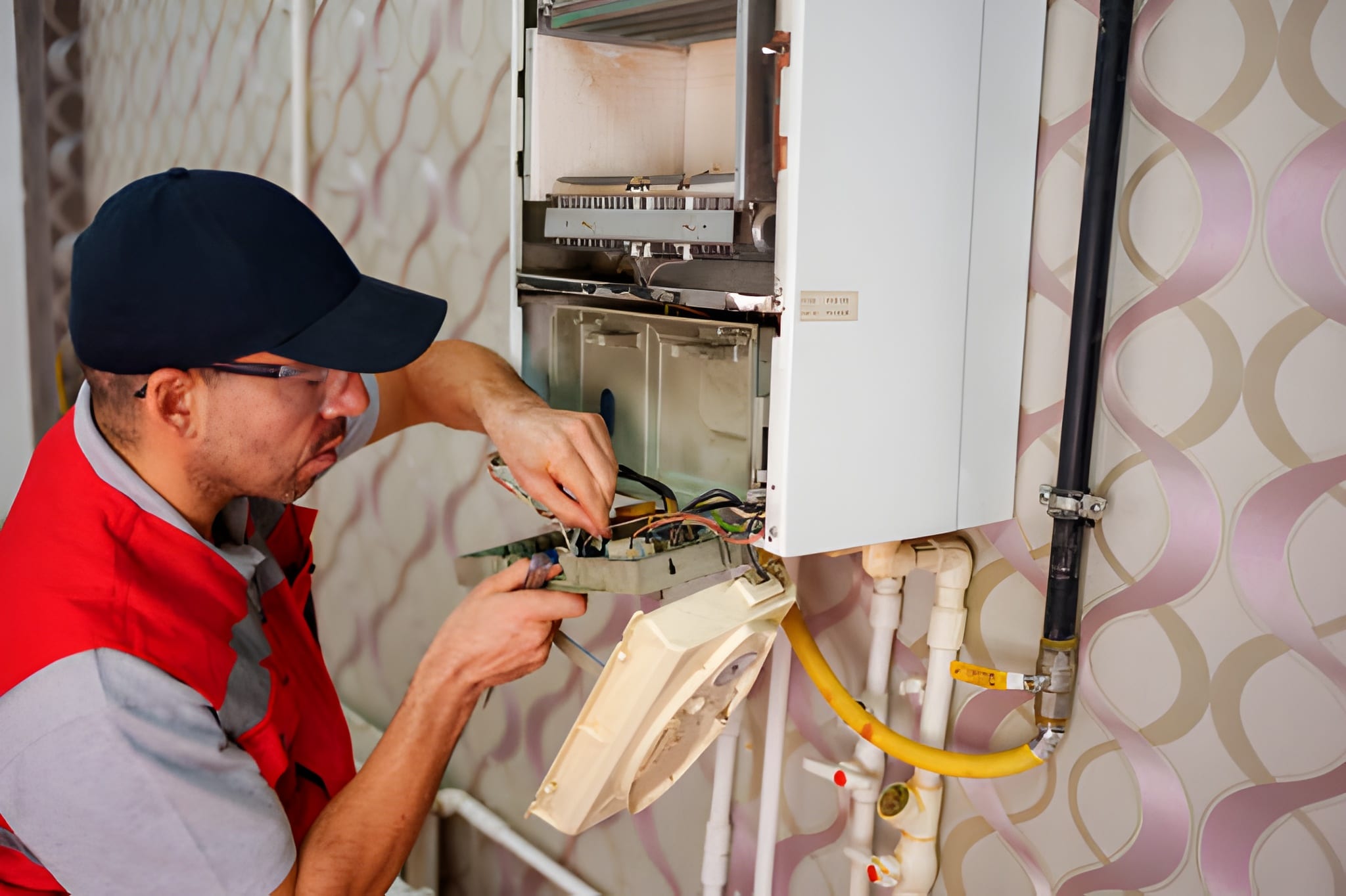Heating Maintenance in Princeton, TX
Keeping your home warm and safe during North Texas cold snaps starts with proactive, professional heating maintenance. In Princeton, TX, where winters are generally mild but occasionally drop into freezing temperatures, a well-maintained heating system prevents unexpected breakdowns, preserves efficiency, and helps keep manufacturer warranties intact.

Why preventative heating maintenance matters in Princeton, TX
Princeton homes face a combination of seasonal pollen, construction dust from rapid local growth, and intermittent sub-freezing nights. Those conditions increase filter clogging and put extra strain on heat pumps and gas furnaces during the coldest periods. Regular maintenance:
- Reduces the risk of mid-winter failures during sudden cold spells
- Restores system efficiency to lower monthly energy use
- Detects safety hazards such as carbon monoxide leaks or blocked vents
- Keeps documentation required by many manufacturers to maintain warranties
Common heating problems seen in Princeton homes
Homeowners in Princeton typically encounter a few recurring issues that preventative maintenance can catch early:
- Restricted airflow from dirty filters, duct leaks, or failing blowers
- Short cycling or uneven heating due to thermostat calibration or refrigerant imbalance (in heat pumps)
- Ignition or pilot failures in gas furnaces
- Reduced heat output caused by clogged condensate drains or dirty coils
- Corrosion or degraded components from humidity and seasonal temperature swings
- Safety risks such as cracked heat exchangers or flue blockages
Types of preventative heating maintenance services
Preventative heating maintenance programs are tailored to the equipment in your home and generally include one or more of the following:
- Seasonal Tune-Ups (fall/winter focused for heat readiness)
- Comprehensive safety inspections (combustion, venting, carbon monoxide risk)
- Filter inspection and replacement guidance (HEPA, MERV options)
- Component checks: burners, ignition systems, blower motor, capacitors, belts
- Electrical system evaluation: controls, relays, fuses, thermostat connections
- Refrigerant level and heat-pump-specific checks (defrost cycle, reversing valve)
- Ductwork assessment for leaks, insulation gaps, and airflow balance
- Combustion analysis and efficiency testing (see below)
- Documentation and service reports for warranty compliance
What a seasonal Tune-Up looks like (step-by-step)
A typical heating Tune-Up in Princeton takes about 45 to 90 minutes depending on system complexity and access. Key steps include:
- Visual inspection of the system, flue/venting, and surrounding area
- Replace or inspect air filter and note recommended filter schedule based on local pollen/dust
- Clean burners, flame sensors, and ignition assembly (gas systems) or clean coils on heat pumps
- Lubricate moving parts, check belts and pulleys
- Measure electrical draw on motors, test capacitors and contactors
- Verify thermostat calibration and control settings
- Test safety switches, limit controls, and airflow; measure static pressure if airflow issues are suspected
- For gas systems: perform a combustion analysis to measure CO and efficiency
- For heat pumps: inspect refrigerant lines, run defrost cycles, and confirm proper reversing valve operation
- Provide a written report with findings, recommended repairs, and maintenance history for warranty records
Combustion and efficiency testing explained
Combustion testing measures how cleanly and efficiently a furnace burns fuel. Technicians use combustion analyzers to check oxygen levels, carbon monoxide (CO), and combustion efficiency. In Princeton homes, this is crucial because:
- Incorrect combustion can produce unsafe CO levels
- Poor combustion means wasted fuel and higher bills
- Results guide adjustments to burners, gas pressure, or draft to improve performance
Efficiency testing (including airflow and temperature split checks) verifies that your system moves the right amount of air and delivers expected temperature rise, which affects comfort and longevity.
Maintenance agreements and scheduling
Maintenance agreements standardize care so your heating system is serviced regularly and documentation is retained for warranty purposes. Typical maintenance agreement features include:
- Annual or biannual scheduled Tune-Ups (most equipment needs at least one annual heating-focused service)
- Priority scheduling windows before seasonal peaks
- Detailed service records kept for warranty compliance
- Optional inspection add-ons for ducts, indoor air quality, or second systems
- Choose timing that fits Princeton climate patterns—schedule a heating Tune-Up in late September to early November to prepare for cold snaps and ensure reliable performance through winter.
Keeping warranties active
Many manufacturers require documented annual maintenance performed by a licensed technician to keep parts and labor warranties valid. To protect warranty coverage:
- Keep the service report from each preventative visit
- Follow recommended maintenance intervals in your equipment manual (usually annual)
- Avoid DIY repairs that involve opening sealed components or altering controls
- Use qualified technicians who perform combustion testing, component cleaning, and provide written documentation
Failure to maintain equipment as recommended can void warranty claims and shift repair costs to the homeowner.
Benefits and long-term value
Investing in regular heating maintenance delivers measurable returns:
- Fewer emergency repairs and less risk of mid-winter failures
- Lower energy bills through improved system efficiency
- Extended equipment life and better resale value for your home
- Increased safety and indoor air quality for families
- Clear records that preserve warranty eligibility and simplify future claims
Simple tips for Princeton homeowners between visits
- Check and replace or clean filters monthly during high pollen or dusty months
- Keep outdoor units clear of debris and vegetation
- Monitor carbon monoxide detectors and battery status
- Note any new noises, odors, or uneven heating and document when they occur
Preventative maintenance is an investment that minimizes risk, reduces operating costs, and preserves comfort in Princeton, TX homes. Regular, documented service ensures your heating equipment performs safely and efficiently through North Texas winters and keeps warranty protections intact.

Flexible Financing Options
Explore our range of flexible financing options designed to suit your needs and budget.













